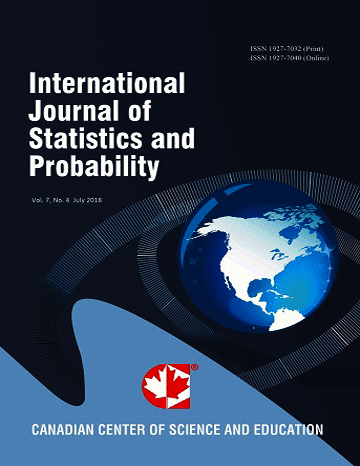Temporal Disaggregation Methods in Flow Variables of Economic Data: Comparison Study
- Isaac O. Ajao
- Femi J. Ayoola
- Joseph O. Iyaniwura
Abstract
Annual Gross Domestic Product (GDP) for Nigeria using observed annual time-series data for the period 1981-2012 was studied. Five different econometric disaggregation techniques, namely the Denton, Denton-Cholette, Chow-Lin-maxlog, Fernandez, and Litterman-maxlog, are used for quarterisation. We made use of quarterly Export and Import as the indicator variables while disaggregating annual into quarterly data. The time series properties of estimated quarterly series were examined using various methods for measuring the accuracy of prediction such as, Theil's Inequality Coefficient, Root Mean Squared Error (RMSE), Absolute Mean Difference (MAD), and Correlation Coefficients. Results obtained showed that export and import are not good indicators for predicting GDP for Nigeria is concerned for the period covered. Denton method proved to be the worst using Mean Absolute Difference (MAD) and Theil’s Inequality Coefficient. However, RSME% and Pearson’s correlation coefficient gave robust values for Litterman-maxlog, thereby making it the best method of temporal disaggregation of Nigeria GDP.
- Full Text:
 PDF
PDF
- DOI:10.5539/ijsp.v5n1p36
Index
- ACNP
- Aerospace Database
- BASE (Bielefeld Academic Search Engine)
- CNKI Scholar
- DTU Library
- Elektronische Zeitschriftenbibliothek (EZB)
- EuroPub Database
- Excellence in Research for Australia (ERA)
- Google Scholar
- Harvard Library
- Infotrieve
- JournalTOCs
- Mir@bel
- Open policy finder
- ResearchGate
- Technische Informationsbibliothek (TIB)
- UCR Library
- WorldCat
Contact
- Wendy SmithEditorial Assistant
- ijsp@ccsenet.org
